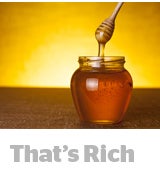 PayPal raised eyebrows and bank balances in the ecommerce marketing technology space on Wednesday when it announced its $4 billion acquisition of Honey Sciences Corporation. Honey operates a shopping tool people install in browsers and apps that scrapes the web for discounts.
PayPal raised eyebrows and bank balances in the ecommerce marketing technology space on Wednesday when it announced its $4 billion acquisition of Honey Sciences Corporation. Honey operates a shopping tool people install in browsers and apps that scrapes the web for discounts.
The deal, expected to close early next year, is a home run for Honey, which has raised less than $50 million and had full-year revenue of $100 million in 2018. And aside form the unusually high multiple on Honey’s revenue, it’s a monster valuation for a browser extension, a much-maligned kind of tech that users install and that works in the background of browsers like Chrome and Safari.
PayPal’s plans for Honey go well beyond its current positioning as a plug-in, however. The Honey tech has the potential to be “transformative” for PayPal, after it’s incorporated into PayPal’s broader consumer products, including Venmo, CEO Dan Schulman told investors in a conference call.
“This moves us up in the entire shopping process,” he said.
PayPal is typically used as a checkout and payment processing service, but a strategic priority for the company is to become a more consistent part of the ecommerce funnel, instead of just the last step in a shopper’s journey. Schulman said that almost 40% of ecommerce transactions are precipitated by a “trigger event” like a discount offer or product ad, and with Honey built into PayPal’s tech, it could become a daily part of user’s shopping and finances, while gathering data to serve personalized promotions.
PayPal was also looking for a company that sits at the intersection of consumer shopping habits and retail partnerships, Schulman said.
Honey has deals with marketplaces and ecommerce platforms like Etsy, Walmart and Expedia, which cut it in on sales similar to an affiliate relationship. With those merchant relationships and a consumer base of 17 million monthly active users (which Honey defines as users with its tech installed who visit at least one of its ecommerce partners in a month), Schulman said Honey has what Salesforce describes as an “entangled value proposition.”
And Honey is ready for a broader role in the commerce sphere as well.
“If people think of us as a coupon extension a year or two from now, we will have failed at execution,” Honey co-founder Ryan Hudson, a former product manager at OpenX, told Recode a year and a half ago.












